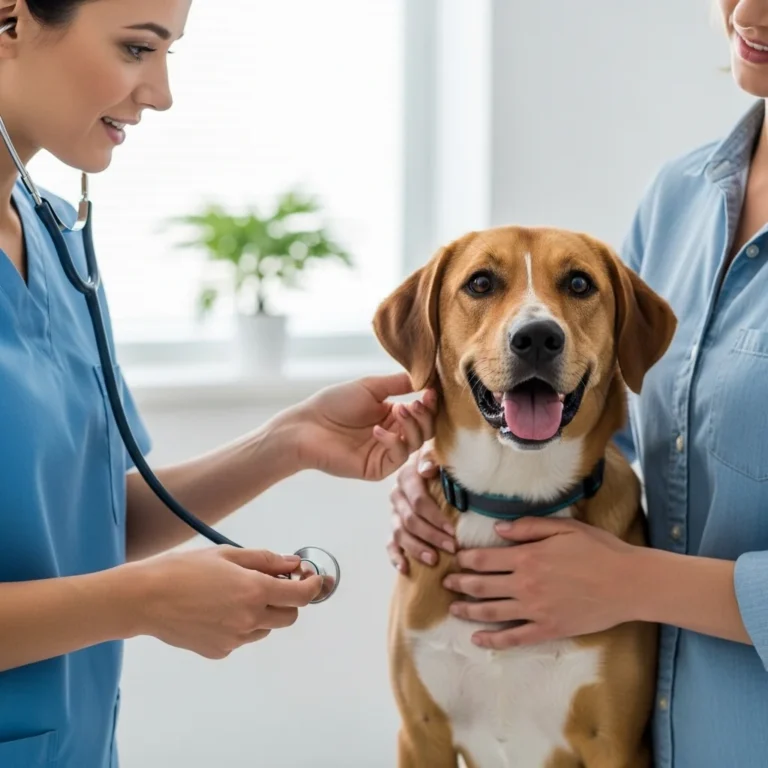
hookworms in dogs
Let’s be real — our dogs love rolling in the grass, digging holes, and sniffing every inch of the park. It’s adorable… until you learn that some of those spots might be hiding a sneaky little menace called hookworms.
I first heard about hookworm in dogs when my friend’s puppy, Milo, started losing weight and acting tired. The vet said he had hookworms, which basically means tiny blood-sucking worms had set up camp in his intestines. Gross, right? But don’t panic — with a little know-how and prevention, you can totally protect your furry buddy from this pesky parasite.
Here’s everything you should know, broken down in plain English (and a little bit of “dog parent” language).
Basics — start here
What are hookworms and which species most commonly infect dogs?
So, hookworms are tiny worms that live in your dog’s intestines and steal their blood for breakfast. (Rude.) The main troublemakers are Ancylostoma caninum and Ancylostoma braziliense, while Uncinaria stenocephala shows up in cooler areas. You can read more about them here.
They might be small, but they pack a punch — even a few can make your pup sick if they hang around too long.
How common are hookworms in dogs?
Way too common! In warmer, humid places, hookworms are practically part of the neighborhood. Some studies found up to 1 in 5 dog poop samples had hookworm eggs. (Source) That means your dog could pick them up just from walking outside. Yikes.
Why are hookworms dangerous for dogs, especially puppies?
For adult dogs, hookworms are annoying. For puppies, they’re downright scary. Because these worms literally suck blood, puppies can become anemic really fast — weak, pale, and even at risk of dying if untreated. (source)
That’s why early treatment is so important. Trust me, catching them early makes a huge difference.
Transmission & Risk — how infections happen
How do dogs get hookworms (routes of transmission: ingestion, skin penetration, transmammary, transplacental)?
Hookworms are sneaky little hitchhikers. Here’s how they invade:
- Through the skin: Larvae in the soil can crawl through your dog’s paws or belly. Ew. (source)
- By mouth: Dogs lick or sniff contaminated ground, and boom — they swallow the larvae.
- By eating something gross: Like an infected rodent. (source)
- From mom: Puppies can get hookworms before they’re even born or through their mom’s milk. (source)
Which dogs are at highest risk of getting hookworms?
Basically, if your dog loves the outdoors, they’re at risk. Puppies are top of the list, followed by dogs that spend a lot of time in moist soil or aren’t on monthly parasite meds. (source)
Can dogs get hookworms from their environment (soil, sand, feces)?
Oh yes. Hookworm eggs live in dog poop and hatch into larvae that survive in warm, damp soil. Your dog can pick them up just by walking or lying on contaminated ground. (source)
Can other animals (wildlife, rodents) spread hookworms to dogs?
Indirectly, yep. Rodents and other small animals can carry dormant larvae. If your dog eats one of them (as dogs love to do), the infection starts. (source)
Signs & Symptoms — what owners should watch for
What are the common signs and symptoms of hookworms in dogs and puppies?
hookworm symptoms in dogs
Some dogs act totally normal while infected, but here are some telltale clues:
- Low energy
- Pale gums
- Bloody or dark poop
- Weight loss
- Dull coat
- Itchy feet or skin
Basically, if your pup seems “off,” don’t ignore it. (source)
How quickly can infected puppies become seriously ill?
Sadly, puppies can go downhill fast — within days. Because they’re tiny, even a little blood loss hits hard. (source)
Can hookworms cause anemia, weight loss, or blood in the stool?
Absolutely. Hookworms are bloodsuckers — literally. Dogs can end up with anemia, weakness, and weight loss. Bloody or tarry poop is a big red flag. (source)
Diagnosis — how vets confirm infection
How are hookworm infections diagnosed (fecal tests, repeated tests, bloodwork)?
Your vet will usually do a fecal test, looking for eggs under a microscope. If that doesn’t show anything, there are advanced antigen or DNA tests that can catch infections earlier. (source)
Blood tests help check for anemia or dehydration. (source)
Why can hookworm tests sometimes be negative even when a dog is infected?
Hookworms have what’s called a prepatent period — they’re there, but not producing eggs yet. Also, if the infection’s light or the worms are all male, tests can miss them. (source)
That’s why vets often repeat tests — sneaky little parasites can play hide and seek.
Treatment — how to get rid of hookworms
What treatments are used for hookworms in dogs (dewormers, drugs, dosing frequency)?
Thankfully, treatment is pretty simple: dewormers. Common meds include pyrantel, fenbendazole, and combo preventives like Heartgard Plus or Simparica TRIO. (PetMD)
Because most dewormers kill adult worms, vets usually repeat doses every 2–3 weeks to catch new ones. (source)
Do puppies need a different treatment plan than adult dogs?
Yep — they need more frequent deworming. Usually at 2, 4, 6, and 8 weeks old, then as the vet recommends. (source)
When should a sick dog with hookworms be seen as an emergency?
If your dog has pale gums, black stool, is weak, or collapses — go to the vet right now. These are signs of severe anemia and need quick care.
Prevention & Control — stopping reinfection
How can I prevent my dog from getting hookworms (sanitation, preventives, monthly products)?
A few easy habits can make all the difference:
- Give a monthly parasite preventive (most heartworm meds cover hookworms too). (source)
- Pick up poop daily. (Seriously — it’s the #1 defense.) (source)
- Keep outdoor areas dry and sunny when possible.
How often should dogs be tested or dewormed for hookworms?
Puppies get dewormed every couple of weeks early on, and adult dogs should have stool checks at least twice a year. (source)
What steps should I take to clean my yard or yard surfaces after a dog tests positive?
- Pick up poop every day.
- Let sunlight dry the soil — hookworm larvae hate it.
- Rotate play areas.
- Wash kennel floors and let them dry completely. (source)
Zoonotic risk — human health concerns
Can hookworms from dogs infect people and what are the typical signs (e.g., cutaneous larva migrans)?
Yes, people can get them too (just not the same way dogs do). The larvae can burrow into your skin and cause cutaneous larva migrans, which looks like red, winding trails under your skin — and it itches like crazy. (source)
How can families reduce the risk of humans getting infected by dog hookworms?
- Don’t walk barefoot where dogs poop.
- Wash hands after gardening or beach time.
- Keep your dog on preventives and clean up after them.
Good hygiene keeps both you and your pup safe.
Special situations — pregnancy, nursing, shelters
Can an infected pregnant or nursing dog pass hookworms to her puppies?
Yes, and it happens often. Hookworm larvae can cross the placenta or sneak into milk. (source)
So, it’s smart to have pregnant or nursing dogs checked and treated when safe.
What should shelters or breeders do to control hookworms in litters and kennels?
Routine deworming, clean kennels, and strict poop control. Many shelters also rotate play areas and disinfect runs regularly to break the cycle.
Medication & Resistance questions
Are over-the-counter dewormers effective against hookworms?
Some are, but not all. Many store-bought options don’t fully clear tough infections. When in doubt, go with a vet-prescribed one — it’s safer and actually works. (source)
Is there evidence of hookworm resistance to common dewormers and what does that mean for treatment?
Unfortunately, yes. Some hookworms have gotten resistant to common drugs. (source)
Experts like Dr. Christian Leutenegger are pushing for smarter use of dewormers and better monitoring.
If your vet suspects resistance, they might use multiple drugs or run lab tests to see what works best. (source)
Follow-up & prognosis
After treatment, how soon will my dog feel better and when will follow-up testing occur?
Most dogs perk up within a few days — they start eating better and regaining energy. Vets usually check stool again in about 2 weeks to make sure the worms are gone. (source)
Can hookworms come back after treatment, and what are the signs of reinfection?
Yep, they sure can. If your dog’s stool gets weird again or they seem tired, go back to the vet. Regular checkups and preventives help stop the “wormy comeback tour.” (source)
Practical owner concerns & myths
Can indoor dogs get hookworms?
Even indoor dogs aren’t 100% safe. You can track larvae inside on shoes or objects, and dogs still need preventives to stay protected.
Is it safe to adopt a dog with a past history of hookworms?
Totally! Most shelter dogs have been dewormed and checked. Just stay on top of vet visits and preventive care.
Do monthly heartworm preventives always protect against hookworms?
Many do, but not all. Check the label — products like Heartgard Plus and Simparica TRIO usually cover both. (source)
Final thoughts
hookworm disease in dogs sound scary (and yeah, kinda gross), but they’re totally manageable with the right prevention. Scoop poop, use monthly preventives, and get regular vet checks — that’s your winning combo.
If your pup ever seems “off,” trust your gut and get them checked. The sooner you act, the quicker they’ll be back to tail wags and zoomies🐾
please leave comment
you may like it






